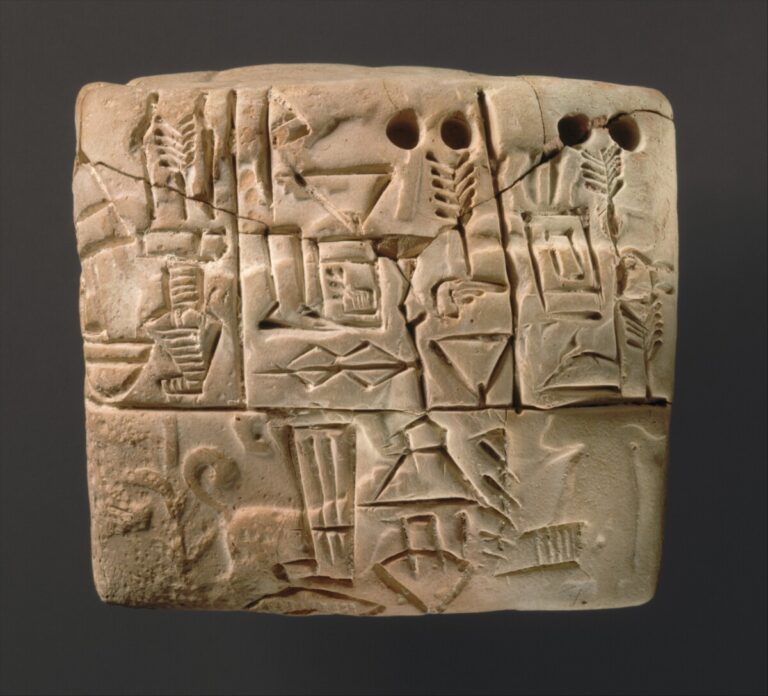17,000 fragments totally maybe 2,500 tablets, discoved in the 1970s, only a few hundred have been translated.
The library of Ebla, located in the ancient city of the same name was located in modern-day Syria. This library dates back to the 24th century BCE and contained thousands of clay tablets written in Sumerian and Eblaite, providing a wealth of information about the culture, economy, and administration of Ebla. These tablets were discovered in the 1970s and offered significant insights into the early periods of human writing and civilization. The Ebla library predates other famous ancient libraries, such as the library of Ashurbanipal in Nineveh and the Library of Alexandria, showcasing the deep historical roots of library institutions as centers of knowledge and record-keeping.











